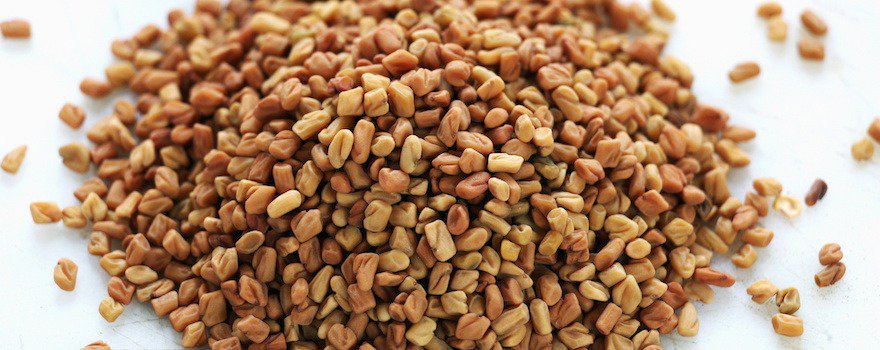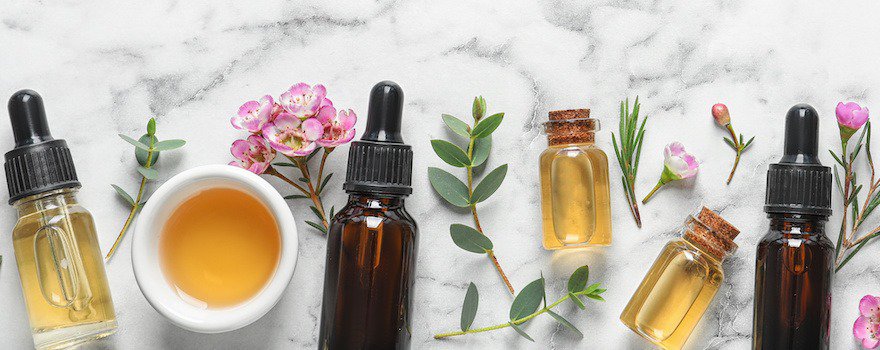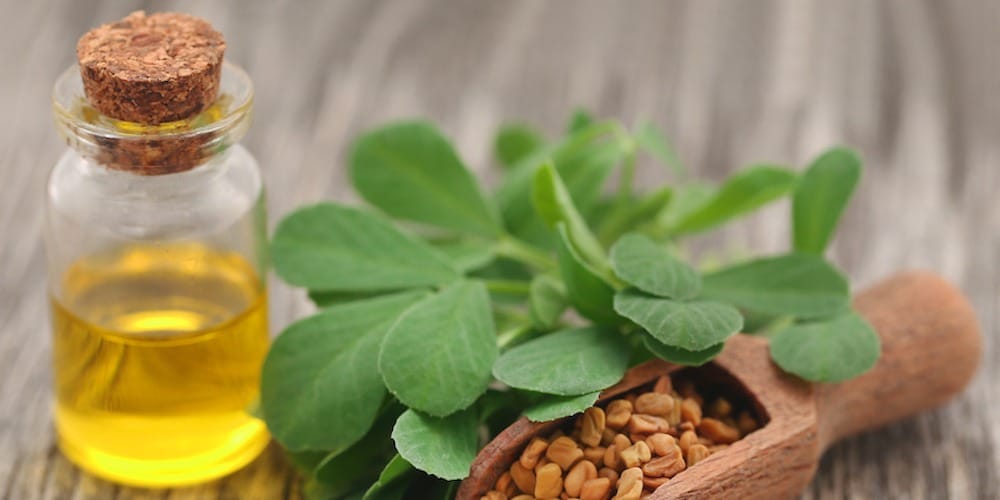The Benefits of Fenugreek Oil
What is it?
Fenugreek is a small, highly fragrant seed used since Antiquity, notably in Ancient Egypt, in gastronomy and traditional medicine. It originates from North Africa and is widely used from the Maghreb to India.
This seed is part of many spice blends, such as curry or ras-el-hanout. It has a very strong and characteristic odor. It can be used as is, although quite hard, ground into powder, or soaked in water. It is also available as a dietary supplement.

Fenugreek oil is extracted from pressed seeds, with cold pressing being ideal. A variation of this pure oil is fenugreek oil macerate, obtained by macerating fenugreek seeds in a vegetable oil.
The virtues of fenugreek
Fenugreek seeds have a dual effect on appetite: they can stimulate appetite, and their fiber richness gives them an appetite-suppressing effect. They are equally recommended for gaining weight or eating less fat: in short, they regulate appetite. Furthermore, they have an anti-diabetes effect and help combat hypercholesterolemia.
Also read Buying Fenugreek
Fenugreek is a strengthening seed and a hormonal stimulator. It is traditionally consumed by women after childbirth to recover and increase milk production. It also helps regulate women’s hormones after menopause. Fenugreek is also believed to be a good aphrodisiac for men by stimulating testosterone production and blood circulation.
Externally used, fenugreek oil is known to strengthen hair: it helps prevent hair loss, makes hair less brittle, and stimulates hair growth.
Also read The Best Natural Dietary Supplements for Hair Health
In the Maghreb, it is used by women to increase breast volume, the curve of hips and buttocks. Yet no scientific study has proven these virtues! It also has an anti-aging and revitalizing effect on the skin.
Fenugreek Oil, Strengthening for Hair and Skin

This oil is rich in proteins, iron, vitamins A, B1, B3, and vitamin C. It is also rich in essential fatty acids, particularly lecithin, a lipid beneficial for hair.
Here are the many uses for which fenugreek oil for hair can be consumed:
- Slow down hair loss
- Have longer hair
- Have less brittle and damaged hair
- Add volume and shine to fine and dull hair
Fenugreek oil is rich in antioxidants, which help slow down skin aging, and in phytoestrogens, stimulating hormone production by the sexual glands. When applied to the chest, it helps to firm it and – it is said – increase breast volume. It can also be used on the face or body to prevent skin sagging and signs of aging.
In Morocco, fenugreek oil is used to combat acne and blackheads. Therefore, it can be used for this purpose or to eliminate imperfections or light scars on the skin.
How to Use Fenugreek Oil?
Choose It Well
Preferably choose organic fenugreek oil, which will concentrate more vitamins without pesticide residues. Opt for a first cold-pressed oil, which preserves all its virtues.
Also read | Everything You Need to Know Before Buying Fenugreek
Available on the market (notably in organic stores) are 100% pure fenugreek oil or oils to which another organic vegetable oil, like sesame oil, has been added to facilitate its extraction.
Fenugreek Oil for External Use
Though fenugreek seeds are entirely edible and even recommended for health, it is better not to ingest fenugreek oil. It is thus reserved for external use, locally on the scalp, chest, body, or face.
For falling hair, apply a mask or an oil bath once a week: mix one tablespoon of fenugreek oil with two tablespoons of castor oil, another strengthening oil for hair.
To stimulate hair growth, create a strengthening serum with mustard seed oil and black seed oil. To nourish the hair, mix fenugreek oil as a mask with coconut oil.
In this respect, fenugreek oil has benefits similar to spirulina on the scalp when it comes to strengthening hair and preventing hair loss.
It is used pure on the chest, with a teaspoon every day. It can also be used mixed with jojoba oil or sweet almond oil. For the face, use a cotton pad or cloth soaked with fenugreek oil for a natural anti-aging treatment, a procedure to be repeated once or twice a week.
It can also be integrated into a cleansing care with a neutral vegetable oil (such as sesame or castor oil). Fenugreek oil also pairs very well with argan oil for mature or tired skin!
Make your own fenugreek oil macerate

While real fenugreek oil can be purchased commercially, you can make your own vegetable oils based on fenugreek for skin care. These will be more economical and will have roughly the same effects as a purchased oil.
It is possible to emulsify organic vegetable oil (sunflower oil for example, 3 tablespoons) with water (100 ml) and organic fenugreek seeds (1 tablespoon) to make a face and body lotion.
You can also make a fenugreek oil macerate by macerating organic fenugreek seeds (two tablespoons) in 50 ml of neutral vegetable oil (olive or sunflower oil). Let it sit for a month in the dark, then filter after use.
Note that there are no side effects at normal doses. However, overly intensive use of fenugreek oil may potentially cause allergic reactions.



